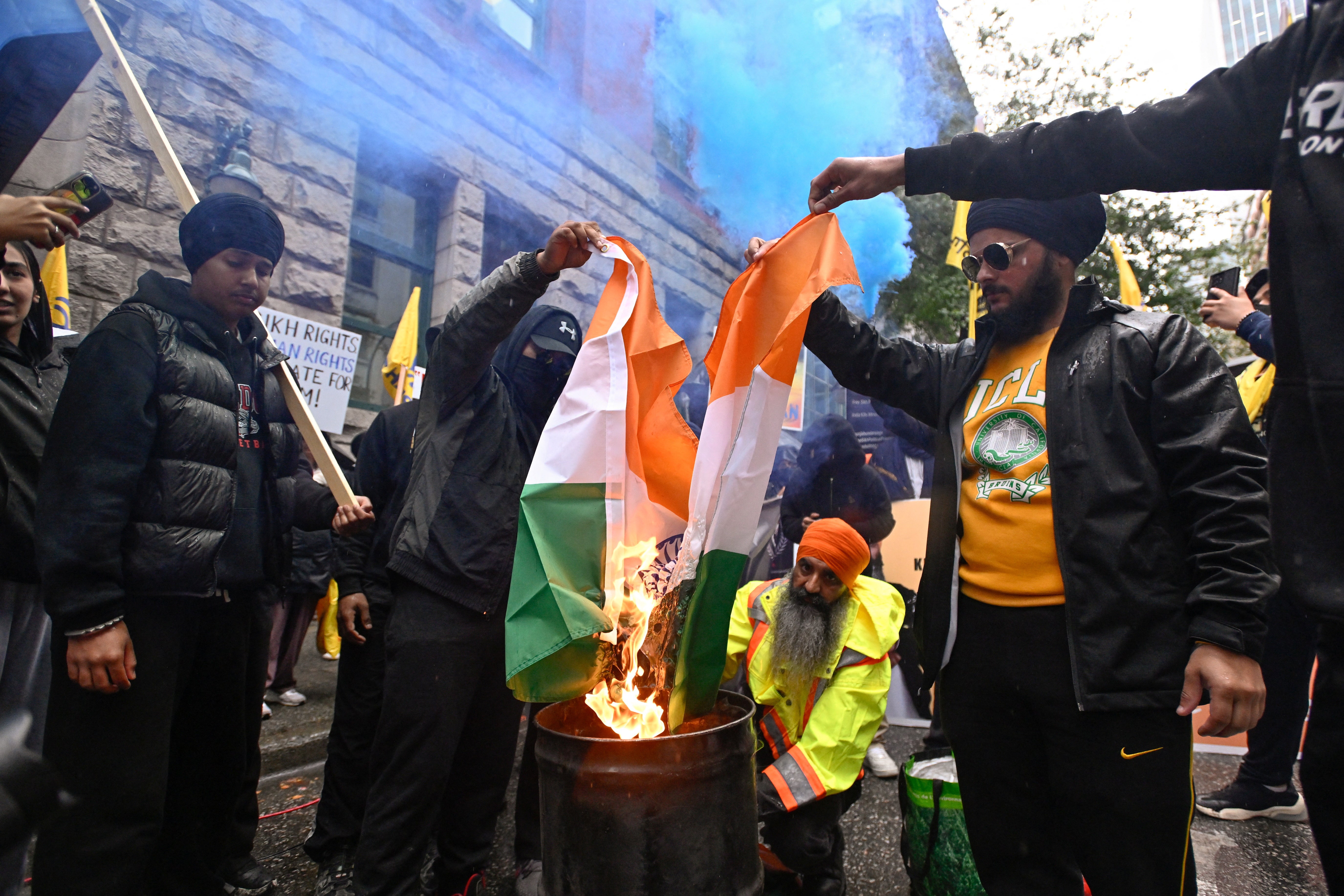Indian envoy admits expulsion of Canadian diplomats was ‘retaliatory’ and ‘emotional’
Indian diplomat says two countries have had ‘constructive’ talks since Justin Trudeau accused New Delhi of involvement in assassination of Sikh leader on Canadian soil
Your support helps us to tell the story
From reproductive rights to climate change to Big Tech, The Independent is on the ground when the story is developing. Whether it's investigating the financials of Elon Musk's pro-Trump PAC or producing our latest documentary, 'The A Word', which shines a light on the American women fighting for reproductive rights, we know how important it is to parse out the facts from the messaging.
At such a critical moment in US history, we need reporters on the ground. Your donation allows us to keep sending journalists to speak to both sides of the story.
The Independent is trusted by Americans across the entire political spectrum. And unlike many other quality news outlets, we choose not to lock Americans out of our reporting and analysis with paywalls. We believe quality journalism should be available to everyone, paid for by those who can afford it.
Your support makes all the difference.An Indian official has admitted that “emotions” played a role in India’s tit-for-tat decision to expel 41 Canadian embassy workers amid a diplomatic row over the murder of a Sikh separatist leader.
Canada was forced to recall dozens of diplomats from India after the Narendra Modi administration threatened to strip them of their diplomatic immunity, saying at the time that it was a move to bring parity between India and Canada’s respective missions.
Relations between India and Canada torpedoed to their worst point in recent history after prime minister Justin Trudeau said there were “credible allegations” of the Indian state’s involvement in the murder of Canadian-Sikh separatist leader Hardeep Singh Nijjar.
Nijjar’s supporters say he was a peaceful campaigner for the cause of a separate Sikh nation – known as the Khalistan movement – while India had named him as a wanted terrorist.
In an interview with Canadian broadcaster CTV, India’s high commissioner to Canada Sanjay Kumar Verma said that “since one of our principal diplomats was expelled from here as persona non grata, so yes, we did retaliate on that”.
Canada expelled the head of Indian intelligence in the country as it investigated Mr Trudeau’s allegations. India expelled a Canadian diplomat in return and suspended all electronic visa services for Canadian nationals for over two months before resuming them earlier this month.
“Since the emotions became very high once the statements were made from Ottawa, and a bit of emotional elements will be there, and the decisions are taken,” Mr Verma said. “Any action will have reaction,” he said.
When asked if that was a “rational approach”, Mr Verma defended the Indian government’s decision to downsize Canada’s diplomatic presence.
“What I said was that the emotional element was also a factor. But if I can go beyond what I have said, we have about 13 Indian diplomats in Canada, altogether,” Mr Verma said.
“If I take it at the maximum level, India has 15 diplomats while Canada has 60-plus. So therefore, there has to be some kind of resemblance,” he said.

Mr Verma said there had been “constructive” conversations and dialogue has been going on between the two governments, and that the relationship has improved, since Mr Trudeau went public with the allegations against India.
He also complained that “India was convicted” before the conclusion of an investigation. “Is that rule of law?” he asked.
When asked to explain how India was “convicted” given only allegations were raised, Mr Verma said: “Because India was asked to cooperate. And if you look at the typical criminal terminology, when someone asks us to cooperate which means that you have already been convicted, and you better cooperate. So we took it in a very different interpretation.”
Relations between the two countries have remained strained over the Khalistan movement as well as Nijjar’s killing. India has vehemently denied any involvement in the latter, arguing that it wasn’t the government’s “policy” to assassinate its opponents on foreign soil.
Last week, White House officials said the US thwarted a conspiracy to kill a Sikh separatist on American soil and warned India over concerns of New Delhi’s involvement at the “senior-most” levels, according to a Financial Times report.
The Indian foreign ministry said the “inputs” by the US “pertaining to nexus between organised criminals, gun runners, terrorists and others” were a cause of concern, without denying the allegations.
Join our commenting forum
Join thought-provoking conversations, follow other Independent readers and see their replies
0Comments